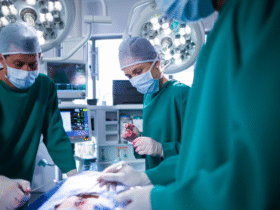Introduction:
Skin redness can be a common concern for many individuals in Melbourne, impacting their self-confidence and overall skin appearance. While there are various causes of skin redness, laser skin clinic melbourne offer a promising solution to address this issue. In this article, we will explore how laser skin treatments can effectively reduce skin redness, providing individuals in Melbourne with clearer, more even-toned skin.
Understanding Skin Redness:
Skin redness can occur due to several factors, including rosacea, sun damage, broken capillaries, or inflammation. It can manifest as persistent redness, visible blood vessels, or blotchy patches on the skin. While there are topical creams and skincare routines that can help to some extent, laser skin treatments have gained popularity for their ability to target redness at a deeper level, providing long-lasting results.
How Laser Skin Treatments Work:
Laser skin treatments, such as laser resurfacing or intense pulsed light (IPL) therapy, work by delivering targeted energy to the deeper layers of the skin. The specific wavelengths of light used in these treatments are absorbed by the red pigment in blood vessels, causing them to coagulate and gradually fade away. Additionally, laser treatments can stimulate collagen production, improving skin texture and elasticity.
Benefits of Laser Skin Treatments for Redness:
1. Reduction of Redness: Laser treatments effectively target and reduce redness caused by conditions like rosacea or broken capillaries. The treatments provide noticeable improvement, resulting in a more even skin tone.
2. Improved Texture and Tone: Laser skin treatments stimulate collagen production, promoting skin rejuvenation and a smoother texture. This can help diminish the appearance of fine lines, wrinkles, and other skin imperfections.
3. Non-Invasive and Minimal Downtime: Laser treatments for redness are non-invasive procedures that typically require minimal downtime. Patients can resume their daily activities shortly after the treatment, making it a convenient option for busy individuals in Melbourne.
4. Customized Approach: Laser treatments can be tailored to each individual’s specific needs. Experienced dermatologists or skin specialists in Melbourne can assess the severity of the redness and customize the treatment parameters accordingly to achieve optimal results.
5. Long-Lasting Results: While multiple treatment sessions may be required to achieve the desired outcome, the results of laser skin treatments for redness can be long-lasting. Additionally, proper skincare and sun protection can help maintain the results over time.
Choosing a Qualified Provider:
To ensure safe and effective treatment, it is important to choose a reputable provider in Melbourne with expertise in laser skin treatments. Look for a dermatologist or a certified aesthetic professional who has experience in treating redness and related skin concerns. Request before-and-after photos of previous patients to assess their expertise in achieving successful outcomes.
FAQs
1: How do laser skin treatments help reduce skin redness?
Laser skin treatments work by delivering targeted energy to the deeper layers of the skin. The specific wavelengths of light used in these treatments are absorbed by the red pigment in blood vessels, causing them to coagulate and fade away over time. This helps reduce skin redness and improve overall skin tone.
2: What conditions can laser skin treatments address for skin redness?
Laser skin treatments can effectively address skin redness caused by conditions such as rosacea, sun damage, broken capillaries, or inflammation. They can help reduce persistent redness, visible blood vessels, and blotchy patches on the skin.
3: How many laser treatment sessions are typically needed to see results?
The number of laser treatment sessions required to see results can vary depending on the severity of the skin redness and the individual’s response to treatment. Generally, multiple sessions are recommended to achieve optimal results. A qualified provider in Melbourne will assess your specific needs and determine the appropriate treatment plan for you.
4: Are laser skin treatments for skin redness painful?
Laser skin treatments for skin redness are typically well-tolerated by most individuals. During the procedure, you may experience a sensation similar to the snapping of a rubber band on the skin, but it is generally not considered painful. Topical numbing creams may be applied before the treatment to minimize any discomfort.
5: Is there any downtime associated with laser skin treatments for skin redness?
Laser skin treatments for skin redness are considered non-invasive procedures with minimal downtime. Some individuals may experience mild redness, swelling, or a sunburn-like sensation immediately after the treatment, but these effects usually subside within a few hours to a few days. Most people are able to resume their normal activities shortly after the treatment.
6: How long do the results of laser skin treatments for skin redness last?
The longevity of results from laser skin treatments for skin redness can vary depending on factors such as the individual’s skin condition, lifestyle habits, and sun protection practices. With proper skincare and sun protection, the results can be long-lasting. However, periodic maintenance treatments may be recommended to sustain the desired outcome.
Conclusion:
If you’re dealing with skin redness in Melbourne, laser skin treatments offer a promising solution to help reduce redness, improve skin tone, and enhance overall skin appearance. These non-invasive procedures can effectively target redness caused by various factors, providing long-lasting results. Consult a qualified provider to discuss your concerns, assess your suitability for laser treatments, and create a personalized treatment plan that addresses your specific needs. With the advancements in laser technology, achieving a clearer, more even-toned complexion is now within reach for individuals in Melbourne.














